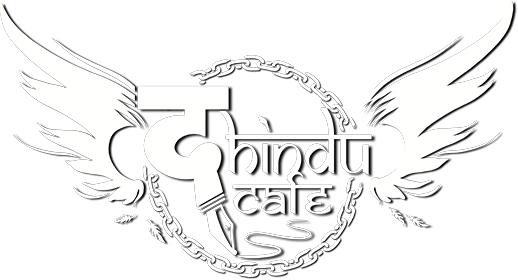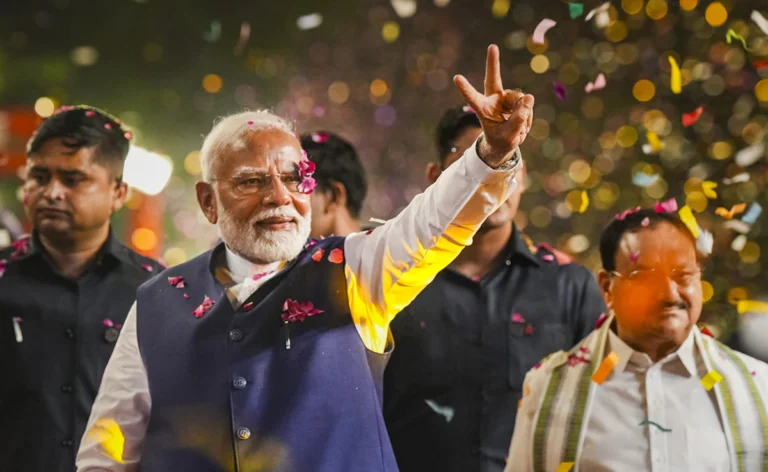The following article appeared in the premier legal news website Bar and Bench and is written by a Senior Advocate. After reading the article and my critique of it, despair at the sheer idiocy at display by someone who by virtue of designation should know better. The sentences in quotation marks are what was written in the article I am assailing.
“There is a fine line between free speech and hate speech. Free Speech encourages debate, whereas hate speech incites violence” – Newton Lee”
The biggest question to be answered in any such debate, is who decides where the fine line is? Who decides the distinguishing features of each side of the line? In India that is the judiciary, the very same judiciary that can and will and previously has complained about the criticism they face. It is this criticism that is now sought to portrayed as hate speech that supposedly incites violence.
“Through judicial activism, the judiciary often peruses critical issues of social radicalization and the rise in fundamentalist tendencies demonstrated by various factions. While judicial members are evidently not immune to fair criticism, misstatements, malicious and disparaging remarks are made to shake public confidence in the judiciary.”
There is absolutely no substance to this statement. Yes, the judiciary deals with sensitive issues that arouse passions that cause people to criticize the judiciary. How then does this criticism become bad? Is it because of the inflamed passions? Clearly not, I can be inflamed by a passion for Hinduism and validly criticize the judiciary for upholding the law the denies Hindu temples their due liberty. Would I be wrong in detecting a callousness when it comes to Hindu issues amongst judges? Would it be wrong to ascribe said callousness to a larger project of deracination? If yes, then mere logical steps taken on the basis of passion do not become illogical. The confidence of the public in the judiciary cannot be considered sacrosanct or permanent. It depends on the actions of the judiciary and the perception of the people subject to the judiciary. It most certainly can go against the judiciary and that by itself is not a failing of the public. One can also assume that the author would never raise such concerns about public confidence, if the judiciary was criticized as being upper caste dominated. That would remain fair criticism despite the fact that it too could cause disillusionment with the judiciary amongst non-upper castes.
“In a modern democracy, the institutionalization of checks and balances is perhaps one of the most vital tools, and a fragile one, given the wide expanse of social media today. On social media platforms, we see the subjective dissection of judgments, derogatory attacks and social ostracization of judicial members by users. These self-anointed messiahs often paint a picture of fictional injustice, overtly tipping towards political hyperactivity without any foundational understanding of the issue at hand.”
The level of insult contained in a statement is inversely proportional to its logical content. The author herself uses the words subjective. Of course, the dissection of judgement will be subjective, some may base their opinion of the judges based on said subjective dissection of judgements. This may cause people to use derogatory terms for judges. I fail to see how this is not part of simple discourse. Unless one establishes the principle that judges are to be above the normal rules of discourse, one cannot make such statements, since discourse involves subjectivity, sensitivity and abuse. The author caricatures those who criticize the judiciary as being hyperactive, the same people could caricature the author as a boot licker of the judiciary since two can play this game. These are people with opinions, opinions that the author disagrees with, hence the deliberate maligning of such people as self-anointed messiahs that tend towards hyper-activism.
“While a free press is supposedly the fourth pillar of the Indian constitutional democracy, unfortunately, it finds itself inflicted with termite-like ravages under the garb of criticism, gnawing through the very pertinency of social issues, leaving the overall veracity of judicial discourse crumbling.”
Or we could interpret this as saying that there are now certain sections in the media that refuse to toe the official judicial line. These portions of the media refuse the sanctity of judges or the judiciary which they are perfectly entitled to. This is termed as gnawing through social issues like termites by the author. The author in my humble opinion is deliberately clubbing together hour long Youtube videos criticizing judges with TV ‘debates’ to consider the entire lot of judicial criticism as invalid and detrimental to judicial discourse.
“The backlash that occurred in the aftermath of judicial comments passed by Justices Surya Kant and JB Pardiwala during the hearing of Nupur Sharma’s case is a recent example of the growing social castigation of the judiciary casting aspersions on the legitimacy of the right to free speech.”
Yeah, and? Surya Kant considers Nupur Sharma responsible for the chaos caused by Muslims because Nupur Sharma responded to a Muslim spokesperson insulting Hindu gods. Of course, that deserves criticism and questioning of the mental faculties of a judge who seems to have no idea about the rules of causation. This is criticism, and just because the author does not approve it, it does not become castigation.
“What is appalling is the non-contextual, disparaging remarks that flooded social media, dissecting the judges’ personal and professional lives, premised only on a fragmented and distasteful interpretation of fleeting remarks. What is pertinent to understand in this context is that the criticism is not founded on constitutional tenets, but instead on political inclinations and hatred towards various religious factions.”
There is nothing fragmented in considering Surya Kant a fool for blaming Nupur Sharma for what happened in the country. She responded by citing Quranic texts and the Hadith to insults to Hindu gods. These were not fleeting remarks, despite the cleverness displayed by judges in not officially recording them. They signal what the Judges consider to be right, that is, Nupur Sharma is responsible for the murder of Hindus by Muslims and the associated riots by Muslims. Basic logic should ideally trump constitutional tenets when the latter makes you take idiotic positions like blaming murders committed by Islamists on a person who was responding to an insult to her Gods.
“Any person expressing views for or against the targeted faction – in this case members of the judiciary – are made scapegoats. What is easily forgotten is that the constitutional post of judicial members demands them to balance the demands of the Rule of Law. Maintaining Rule of Law is an arduous exercise, which requires judicial craftsmanship to walk the tightrope between majoritarian pressures and widespread social ramifications.”
It is not maintaining the rule of law to call Nupur Sharma a woman with a loose tongue. It is not maintaining the rule of law to consider her responsible for the violence planned and executed by Muslims. It is not maintaining the rule of law to consider her vicariously responsible for Kanhaiya Lal’s murder. Including the bogey of majoritarian pressure does not add to an argument, when the argument is that of basic logic which would dictate that Nupur Sharma is emphatically not responsible for the actions of others.
“The Constitution of India guarantees freedom of speech and expression as a fundamental right with reasonable restrictions prescribed under Article 19(2) protecting the interests of the State’s sovereignty and integrity, friendly relations with other countries, public order, decency or morality, or contempt of court, defamation, or incitement to commit a crime. Hence, criticism premised on good-faith and well-founded legal knowledge is conveniently discarded at the cost of causing judicial ostracization.”
And who decides what is considered a reasonable restriction? Of course, the judiciary. So, do we trust the judiciary to be objective when deciding what is reasonable when criticisms are launched at the judiciary itself? Retreating into legal language to deny basic logic seems to be the authors go to stratagem. What is left unsaid is that the author will decide what is good faith or not and the author will be the arbiter of what is well founded legal knowledge. What she disagrees with shall be considered beyond the pale of reasonability and as such not covered under the right to freedom of speech.
“The legal diaspora is all-inclusive, an example of which is Section 5 of the Contempt of Courts Act, 1971 which reads- “a person shall not be guilty of contempt of court for publishing any fair comment on the merits of any case which has been heard and finally decided. A person shall not be guilty of contempt of court for publishing any fair comment on the merits of any case which has been heard and finally decided.”
Completely and totally irrelevant since it is the court itself decides what is or is not fair comment. Who will judge our judges? Why is there this blind faith in their impartiality? Why is there this blind dismissal of criticism directed at them as malafide and in bad faith?
“The same legislation under Section 2(c) defines criminal contempt as “the publication of any matter or the doing of any other act which scandalizes or lowers the authority of any court; or prejudices or interferes with the due course of any judicial proceeding; or obstructs the administration of justice.””
Read the para above this one again. I repeat my question who shall judge the judges?
“Often, freedom of speech is suspected to be trivialized at the cost of protecting the integrity of the courts in India. However, this suspicion is employed as a defence against disparaging remarks targeted at the very authority of the court, and also seeds law and order concerns where the public at large is seen engaging in antisocial activities.”
I do have a concern. Why is the judiciary in its present form considered sacrosanct? If it can be established that it is hostile to Hindu political interests, is it not legitimate for those that support Hindu political interests to oppose this judiciary root and branch? The authority of the court is based on people believing that it is a neutral arbiter. If Hindus cease to have this belief, then there is no point to this court or the current system. This may be illegal to state but nevertheless it is a right inhering to all communities that seek to protect their interest.
“The weapon of free speech is callously used, and enforcement of reasonable restrictions on such uncharitable remarks is warranted in order to sustain the legitimacy of judicial institutions. In this regard, Justice Swaminathan made incisive observations, noting,
“…attacks attempted at Judges for their judgments lead to a dangerous scenario, wherein Judges would have to pay greater attention to what the media thinks rather than what the law actually mandates. This puts the rule of law on the burner, ignoring the sanctity of respect for the Courts.”
Yet again this adamant belief that courts need sanctity and to attack them is to invite some dangerous scenario. I argue that the sheer bias displayed by Judges and the Judiciary and Senior Advocates invites the criticism that the judiciary has no integrity especially when it comes to Hindus. As such it has no right to claim the allegiance of any right-thinking Hindu.
“Hence, attempts to induce majoritarian or even misanthropic views against judicial members under the garb of free speech not only mars their freedom to dispense their duties, but also attacks the very solemnity of the constitutional post held by them. Whether there is a “Streisand effect” to this or not is a matter that has no bearing on the issue of judicial vilification. Where there is a right, there is a corresponding duty assigned to citizens of the intelligentsia, and it’s high time they are made aware of it.”
The bias of the author is again on display. The solemnity of the constitutional post is not a permanent, holy feature that is impervious to change or disbelief. This is sheer dogma. The judiciary stands or falls on the perception of the people, howsoever it may be formed. Anything else, and the judiciary can simply be termed an imposition on the people that they have no right to remove. The duty of citizens is to criticize vociferously and rearrange thoroughly any institution that does not serve them. The judiciary exists for the people, the people do not exist for the judiciary.
“Just as various parts of a judgment contain a ratio and obiter, similarly, during the course of proceedings, there are conversational remarks which are passed in a court of law during interactions with lawyers. However, these under no circumstances ripen into the black letter of the law.”
Plain obfuscation. If I call you an idiot but do not reduce it to writing, will it cease to be my opinion of you? Does it not betray my disposition towards you? The Judges were well aware about the content of their remarks as well as where it would be broadcast. Only a fool would think that the judges were not displaying their personal disposition or that they were unaware about their words influencing the society at large.
“This also hints at how trials induced by the public at large on mediums such as Twitter, Facebook, Reddit, Instagram et al are only but a physical manifestation of burning sentiments, which are heavily coloured with personal opinions, all of which have no bearing whatsoever to the law written and the law opined.”
So what? Burning sentiments are to be outlawed? Or are physical manifestations of them to be outlawed? Who shall decide what are these burning sentiments or indeed if they are burning or not? Why are burning sentiments any less valid than not so burning sentiment? Can the views of the author regarding the sanctity of the judiciary, not be considered a burning sentiment given the number of times she has stated the same in her article? The author has quite clearly stated the principle she believes in. Your conscience be damned if the law does not approve of your conscience.




